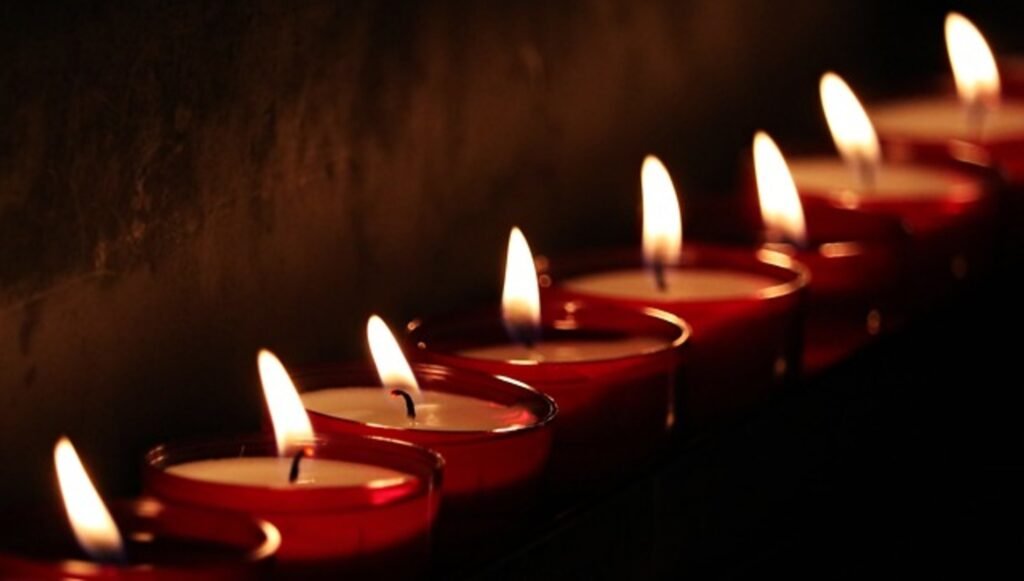Christianity, as one of the world’s largest religions, encompasses a profound array of convictions, observances, and customs. These customs, deeply entrenched in the historical backdrop of the faith, bear immense importance for Christians across the globe. Likewise, Nagaland boasts as a Christian sate with more than 80% of its population being Christians; along the same line, Nagaland is also known as the land of festivals. And such festivals showcase the tribal cultures and the uniqueness of the Naga people, as well as our history way before Christianity reached our land. We come from a long line of people who were head-hunters and believed in animism all of which is quite contradictory to our current Christian belief. Moreover, our uniqueness is not derived from our festivals and attire alone but from our customs and culture alike. However, there are certain traditions, culture and old age beliefs that clash with our Christian faith. In this piece, we shall delve into the significance of traditions within the context of Naga Christianity and how it has settled in society within the spiritual sphere.
Customs assume a pivotal role in Christianity, serving as a conduit to establish a connection between adherents and their spiritual legacy. These traditions and practices serve as a tangible link to the teachings and experiences of Jesus Christ and the early Christian community. As we look at our society today in the field of religion, it is a blend between faith and traditions. Consisting of many tribes, Nagas has their own set of traditional values and ethics that has been passed down from generations, and although modernity has touched the state, people still uphold some age-old beliefs. Such beliefs can range from mild to extreme and in some cases, our Naga traditions take a bigger importance in our spiritual journey. Every tribe has their own set of old age traditions that sets each of the tribe apart from one another and these traditions help in identifying ourselves from the rest of the world.
Just like all societies have traditions to follow, Naga people also have traditions much older than societal traditions. And Christianity having a long history has its own traditions as well, for example, Baptism. In our Naga context, language is also part of our tradition which has been imbibed in our array of Churches to adhere to the needs of an ever-growing spiritual hunger. But we also still believe in certain superstitions that transcend the theology of Christian faith. To add, wear our traditional attires to Church and make an effort to safeguard our traditions that has been passed down from the age of animism. We also have festivals celebrating our existence and ancestors. Through traditions, Christians uphold the fundamental principles of their faith, nurturing a sense of unity, continuity, and veneration across successive generations, which is also the case for Naga traditions and culture.

Christian traditions often find expression through rituals and sacraments that symbolize momentous occasions in an individual’s faith journey. Baptism, the sacrament of initiation, symbolically represents the cleansing of sin and admission into the Christian community. Marriage, an indispensable sacrament, signifies the sacred union of two individuals in the presence of God. The sacrament of reconciliation, also known as confession, provides a pathway for repentance and forgiveness.
Christianity propagates the sanctity of being pure and clean not only in spirit but in what we eat and our ways of life as well, but our traditions heavily contradict such teachings in the name of traditions and ancestral beliefs. There remains an internal conflict within ourselves where we question whether some traditions are necessary to be followed and whether there needs to be some change in our lifestyles. But all these hinder with the preservation of our culture and traditions because history needs to be collected, formed and saved, lest we forget where we came from. As is now, our traditions are as important as religion and the line between these two are often blurred.
In addition to sacramental customs, Christianity encompasses diverse cultural practices influenced by the varied communities that have embraced the faith. These customs embody local traditions, artistic expressions, musical forms, and acts of devotion. From the vibrant festivities of Christmas and Easter to the distinctive customs associated with saints and holy days, cultural customs within Christianity offer a rich tapestry of manifestations through which believers establish a profound connection with their faith. There are often a times small internal conflicts upon the idea of traditions in Christianity. The question being whether we should really be following such traditions because it came from our forefathers and ancestors who were animist and how it goes against our Christian belief and the teachings of the Bible. In our Christian faith today, we still have a certain belief in superstitions that has no link to the Bible, however, Naga traditions are part and parcel of our identity and considering that we were once a tribe of headhunting people who now have become Christians, we can aptly say that we have outgrown most of our past.
Traditions hold a significant place in Christianity, serving as a thread that interconnects the global Christian community. Through liturgical practices, rituals, sacraments, and cultural expressions, traditions provide adherents with a tangible link to their spiritual legacy, fostering a sense of unity, veneration, and continuity throughout the ages. What we can say about Naga traditions in Christianity is that we have made it possible for an almost harmonious exchange between the two, creating an atmosphere of greater learning. And the only plausible way to know its limit of blending is when certain traditions are subjected to moral and spiritual questions. Apart from such a scenario, traditions and Christianity are interdepend.